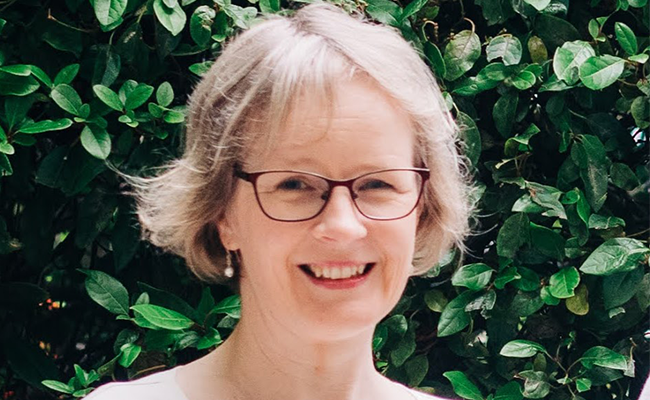 Associate Professor Jane Girling
Associate Professor Jane Girling
As part of highlighting Endometriosis Awareness Month, Associate Professor Jane Girling from the Department of Anatomy shares why more people need to be aware of endometriosis as well as what brought her to this field of research.
Associate Professor Girling says endometriosis is a very common disease, believed to affect 1 in 9 girls, women, and people with a uterus by the time they reach their early forties.
This disease can be severely debilitating, with symptoms ranging from particularly severe menstrual pain, through to compromised fertility.
As a result, other aspects of life are also hugely impacted including education, employment and relationships.
“Current treatment options commonly focus on reducing symptoms and don't necessarily get rid of the disease, so we need to make sure that people can access timely diagnosis, ongoing multidisciplinary clinical care as needed, and find appropriate pain relief,” Associate Professor Girling says.
“Despite being a very common disease and despite knowing that individuals with close relatives with endometriosis are at higher risk of developing the disease, we still don't understand what causes endometriosis. “
Associate Professor Girling says she has always been fascinated by the cyclic changes that prepare the uterus and body for the possibility of a pregnancy and that waiwhero (menstruation) is just a part of these monthly changes.
“It's a normal physiological process, but our young wāhine often associate having a period with shame and embarrassment and for those who have problems with their menstrual periods, like pain and heavy bleeding, these societal taboos make getting the help they need even more difficult,” she says.
Having grown up in the early days of reproductive technologies like in vitro fertilisation (IVF) Associate Professor Girling says her fascination with reproduction came after watching Sunday evening David Attenborough documentaries and that has led her to her current research on the subject at the University of Otago.
She acknowledges the colleagues who support her through her journey, both in Aotearoa and Australia, with special thanks to Dr Rebecca Bird, Professor Rebecca Campbell, Associate Professor Bryndl Hohmann-Marriott, Mrs Arianna Nisa-Waller, Dr Michael Pankhurst and Dr Charlene Rapsey.
She says this group recognises the need for a multidisciplinary approach to understanding, improving and promoting menstrual health, with the recognition of the cultural and societal context that shapes peoples thinking.
“Our aim is to ensure ōritetanga (equality) for all our wāhine as we strive to keep Māori perspectives front and centre and acknowledging the traditional Māori views of menstruation in our research and response.”
Following on from their research into what young people understand about menstruation and menstrual health, Associate Professor Girling and her team are now in the very early stages of community consultation, laying the foundations for the development of an age-appropriate and culturally responsive menstrual health information programme.
They are currently looking at how individuals monitor and track their menstrual experience and how the unmet needs of those with endometriosis can be managed more appropriately.
An online survey recently conducted by the group investigated the experiences and gaps in clinical care in those with endometriosis and/or polycystic ovarian syndrome.
They were overwhelmed by their survey response, receiving more than 1,300 responses within two weeks and they look forward to analysing the data to gain a clearer understanding of the clinical and social needs of those with endometriosis and/or polycystic ovarian syndrome.
“Endometriosis can't be seen from the outside and so individuals with the disease can often be fobbed off and ignored, but it affects so many of us and it can be miserable,” Associate Professor Girling says.
“Whether due to endometriosis or another cause, severe menstrual period pain is not 'just' period pain and we must not forget those for whom this chronic pain is a part of their daily lives.”
- Written by the School of Biomedical Science's Communications Adviser, Kelsey Schutte.
